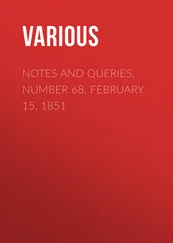Various - Imperialism and Mr. Gladstone
Здесь есть возможность читать онлайн «Various - Imperialism and Mr. Gladstone» — ознакомительный отрывок электронной книги совершенно бесплатно, а после прочтения отрывка купить полную версию. В некоторых случаях можно слушать аудио, скачать через торрент в формате fb2 и присутствует краткое содержание. Жанр: История, foreign_edu, на английском языке. Описание произведения, (предисловие) а так же отзывы посетителей доступны на портале библиотеки ЛибКат.
- Название:Imperialism and Mr. Gladstone
- Автор:
- Жанр:
- Год:неизвестен
- ISBN:нет данных
- Рейтинг книги:4 / 5. Голосов: 1
-
Избранное:Добавить в избранное
- Отзывы:
-
Ваша оценка:
- 80
- 1
- 2
- 3
- 4
- 5
Imperialism and Mr. Gladstone: краткое содержание, описание и аннотация
Предлагаем к чтению аннотацию, описание, краткое содержание или предисловие (зависит от того, что написал сам автор книги «Imperialism and Mr. Gladstone»). Если вы не нашли необходимую информацию о книге — напишите в комментариях, мы постараемся отыскать её.
Imperialism and Mr. Gladstone — читать онлайн ознакомительный отрывок
Ниже представлен текст книги, разбитый по страницам. Система сохранения места последней прочитанной страницы, позволяет с удобством читать онлайн бесплатно книгу «Imperialism and Mr. Gladstone», без необходимости каждый раз заново искать на чём Вы остановились. Поставьте закладку, и сможете в любой момент перейти на страницу, на которой закончили чтение.
Интервал:
Закладка:
Various
Imperialism and Mr. Gladstone 1876-1887
INTRODUCTION
This series of English History Source Books is intended for use with any ordinary textbook of English History. Experience has conclusively shown that such apparatus is a valuable – nay, an indispensable – adjunct to the history lesson. It is capable of two main uses: either by way of lively illustration at the close of a lesson, or by way of inference-drawing, before the textbook is read, at the beginning of the lesson. The kind of problems and exercises that may be based on the documents are legion, and are admirably illustrated in a History of England for Schools , Part I., by Keatinge and Frazer, pp. 377-381. However, we have no wish to prescribe for the teacher the manner in which he shall exercise his craft, but simply to provide him and his pupils with materials hitherto not readily accessible for school purposes. The very moderate price of the books in this series should bring them within reach of every secondary school. Source books enable the pupil to take a more active part than hitherto in the history lesson. Here is the apparatus, the raw material: its use we leave to teacher and taught.
Our belief is that the books may profitably be used by all grades of historical students between the standards of fourth-form boys in secondary schools and undergraduates at Universities. What differentiates students at one extreme from those at the other is not so much the kind of subject-matter dealt with, as the amount they can read into or extract from it.
In regard to choice of subject-matter, while trying to satisfy the natural demand for certain "stock" documents of vital importance, we hope to introduce much fresh and novel matter. It is our intention that the majority of the extracts should be lively in style – that is, personal, or descriptive, or rhetorical, or even strongly partisan – and should not so much profess to give the truth as supply data for inference. We aim at the greatest possible variety, and lay under contribution letters, biographies, ballads and poems, diaries, debates, and newspaper accounts. Economics, London, municipal, and social life generally, and local history, are represented in these pages.
The order of the extracts is strictly chronological, each being numbered, titled, and dated, and its authority given. The text is modernized, where necessary, to the extent of leaving no difficulties in reading.
We shall be most grateful to teachers and students who may send us suggestions for improvement.
S. E. WINBOLT. KENNETH BELL.I acknowledge, with thanks to the authors concerned, and to Messrs. Macmillan and Co., their kind permission to reprint in this volume the following passages: that on p. 102, from the Life of Lord Randolph Churchill, by the Right Hon. Winston Churchill; three extracts, on pp. 59, 62, 83, from Mahdiism and the Egyptian Soudan, by Sir Francis Wingate; the passages from Lord Morley's Life of Gladstone, on pp. 97, 98, 101, 110; and the passages from Lord Cromer's Modern Egypt, on pp. 68, 69, 70, 87. I acknowledge also with thanks the permission of the proprietors of The Times to reprint the various extracts from that journal; and the permission of the proprietors of The Saturday Review to reprint the extract on p. 35. In dealing with a period so recent, I have inevitably been very dependent upon the courtesy of the owners of copyright, and I wish to express my gratitude for the readiness with which that courtesy has been extended in these important cases.
I am also indebted to Messrs. Longmans, Green and Co. for permission to print extracts from Professor Mackail's Life of William Morris, and from Mr. Bernard Holland's Life of the late Duke of Devonshire, and to Messrs. Kegan Paul and Co. for similar permission to quote from General Gordon's Journal.
R. H. G.PURCHASE OF THE SUEZ CANAL SHARES (1876)
Mr. Disraeli: … When we acceded to office two years ago an International Commission had only just ceased its labours at Constantinople upon the dues of the Suez Canal, and upon the means of ascertaining and maintaining a limit of them, and it had arrived at reasons entirely protested against by the proprietary. What was the state of affairs there? Lord Derby had to deal with them. The proprietary of the canal threatened, and not only threatened, but proceeded, to stop the canal. They refused pilots; they threatened to change the signals; they took steps which would have interrupted that mode of intercourse with India… From that moment it became a matter of interest to those responsible for the government of this country to see what could be done to remedy those relations with the Suez Canal… But it suddenly comes to our knowledge that the Khedive, on whose influence we mainly depended, is going to part with his shares. We received a telegram from Cairo informing us that the Khedive was anxious to raise a considerable sum of money upon his shares in the Suez Canal, and offered them to England. We considered the question immediately, and it appeared to us to be a complicated transaction – one to which there were several objections; and we sent back to say that we were favourably disposed to assist the Khedive, but that at the same time we were only prepared to purchase the shares outright. What was the answer? The answer was that the Khedive was resolved, if he possibly could, to keep his shares, and that he could only therefore avail himself of a loan. There matters seemed to end. Then suddenly there came news to the Government of this country that a French society – Société Générale – was prepared to offer the Khedive a large sum of money – very little inferior to the four millions – but on very onerous conditions. The Khedive communicated with us, and said that the conditions were so severe that he would sooner sell the shares outright, and – which I had forgotten to mention – that, in deference to his promise that England should always have the refusal of the shares if he decided to sell them, he offered them to the English Government. It was absolutely necessary to decide at that moment what course we should take. It was not a thing on which we could hesitate… To pretend that Lord Derby has treated this business as a mere commercial speculation is idle. If he did not act in accordance with the principles of high policy, I should like to know what high policy is, and how a man can pursue it.
Apart from looking upon this as an investment, if the shares had been offered, and if there had been no arrangement of paying interest for nineteen years, so far as I am concerned, I should have been in favour of the purchase of the shares. I should have agreed with Lord Derby in thinking that England would never be satisfied if all the shares of the Suez Canal were possessed by a foreign company. Then it is said, if any obstacles had been put in your way by the French proprietors of the canal, you know very well that ultimately it must come to force, and you will then obtain at once the satisfaction of your desire. Well, if the government of the world was a mere alternation between abstract right and overwhelming force, I agree there is a good deal in that observation; but that is not the way in which the world is governed. The world is governed by conciliation, compromise, influence, varied interests, the recognition of the rights of others, coupled with the assertion of one's own; and, in addition, a general conviction, resulting from explanation and good understanding, that it is for the interests of all parties that matters should be conducted in a satisfactory and peaceful manner… I cannot doubt that the moral influence of England possessing two-fifths of the shares in this great undertaking must have made itself felt, must have a considerable influence upon the conduct of those who manage the company… England is a Mediterranean Power; a great Mediterranean Power. This is shown by the fact that in time of war always, and frequently in time of peace, she has the greatest force upon those waters. Furthermore, she has strongholds upon those waters which she will never relinquish. The policy of England, however, is not one of aggression. It is not provinces she wants. She will not interest herself in the redistribution of territory on the shores of the Mediterranean, as long as the redistribution does not imperil the freedom of the seas and the dominion which she legitimately exercises. And therefore I look upon this, that in the great chain of fortresses which we possess, almost from the Metropolis to India, that the Suez Canal is a means of securing the free intercourse of the waters, is a great addition to that security, and one we should prize.
Читать дальшеИнтервал:
Закладка:
Похожие книги на «Imperialism and Mr. Gladstone»
Представляем Вашему вниманию похожие книги на «Imperialism and Mr. Gladstone» списком для выбора. Мы отобрали схожую по названию и смыслу литературу в надежде предоставить читателям больше вариантов отыскать новые, интересные, ещё непрочитанные произведения.
Обсуждение, отзывы о книге «Imperialism and Mr. Gladstone» и просто собственные мнения читателей. Оставьте ваши комментарии, напишите, что Вы думаете о произведении, его смысле или главных героях. Укажите что конкретно понравилось, а что нет, и почему Вы так считаете.












